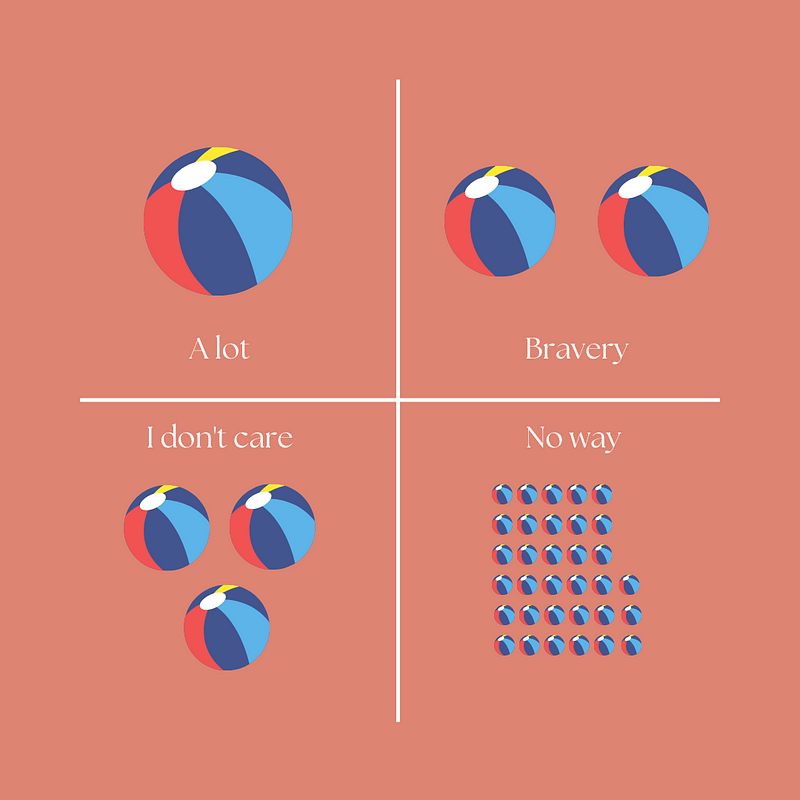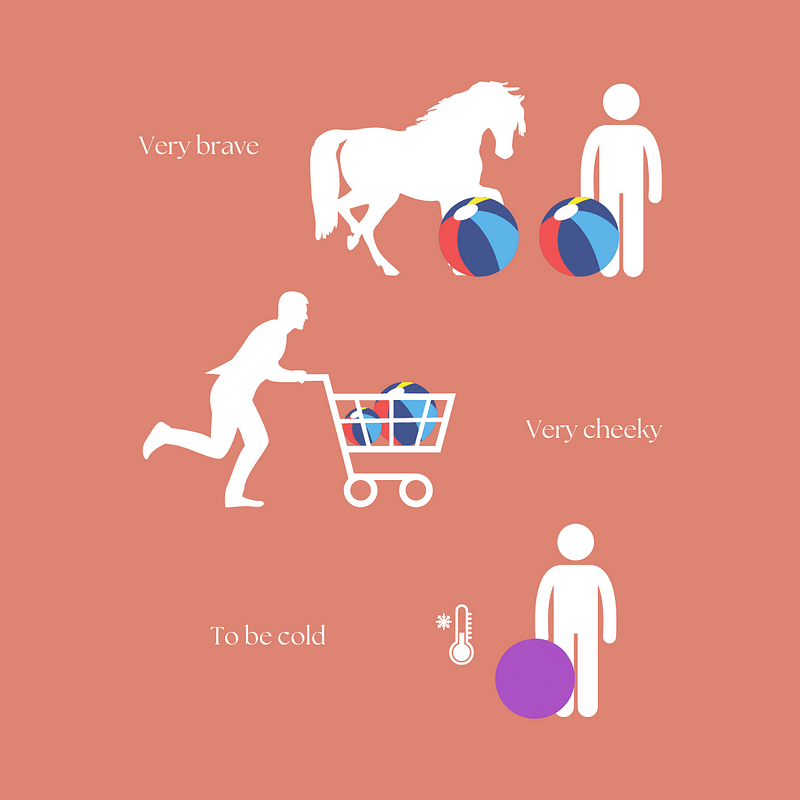Mastering Spanish Slang: The Versatility of "Cojones"
Written on
Chapter 1: The Playfulness of Spanish
Spanish is undeniably an entertaining language. This time, let's explore how the term "cojones," or "balls," can facilitate entire conversations. Interestingly, in Spain, everyone seems to possess cojones—unless they're considered timid.
First, it's essential to grasp the significance of the quantity of cojones mentioned.
One
You might say: me ha costado un cojón or ¡Y UN COJÓN!
- Translation: "It cost me a ball" or "AND A BALL!"
- Meaning: The first phrase emphasizes difficulty, while the latter implies "NO WAY!"
Two
You could express: esta chica tiene dos/un par de cojones (bien puestos).
- Translation: "This girl has two balls" or "a pair of balls (well placed)."
- Meaning: This indicates she is quite courageous.
Three
You might say: me importa tres cojones (y medio).
- Translation: "I care three balls (and a half)."
- Meaning: This conveys indifference.
Thirty-Three
You can use: mis cojones 33.
- Translation: "My balls 33."
- Meaning: This means "not a chance" or "you wish."

Chapter 2: The Many Colors and Sizes of Cojones
Moving on, you'll find that the meanings of cojones can vary widely based on their described size or color.
Size
You might say: David tiene los cojones grandes o como el caballo del Cid.
- Translation: "David has big balls" or "has balls as big as the Cid’s horse."
- Cultural Note: The Cid is a revered figure in Spanish literature, showcasing the depth of our cultural references.
- Meaning: This phrase indicates exceptional bravery.
Alternatively, you could say: Jorge tiene unos cojones que se los pisa o que los tiene que llevar en carretilla.
- Translation: "Jorge has such big balls that he steps on them" or "so big he has to carry them in a trolley."
- Meaning: This describes someone who is quite audacious.
Color
An expression could be: tengo los cojones morados.
- Translation: "I have purple balls."
- Meaning: This conveys feeling cold.

Chapter 3: The Art of Touching Cojones
Let's delve into the context of who is touching the cojones.
Touching Your Own
You could say: me estoy tocando los cojones or Lisa se ha tocado los cojones.
- Translation: "I am touching my balls" or "Lisa has been touching her balls."
- Meaning: This indicates a lack of productivity.
Touching Someone Else’s
You might express: le estoy tocando los cojones.
- Translation: "I am touching somebody’s balls."
- Meaning: This implies you're annoying someone.
But that's not all! The word "cojones" can express a myriad of emotions.

Chapter 4: Family-Friendly Alternatives
Of course, there are moments when it's inappropriate to use such explicit language, particularly around children. In these situations, you can use "cojines," which translates to cushions but carries the same connotation in a more family-friendly manner.
For instance, you might say: no me toques los cojines.
- Translation: "Do not touch my cushions."
- Meaning: This implies "stop bothering me."
As demonstrated, "cojones" offers a vast range of expressions. Why learn 25 different words when one can suffice?
I challenge you to find another word in your language with as many applications!
Thank you for taking the time to read this article! I'm grateful for the opportunity to share my insights, and I hope this information proves beneficial. If you have additional thoughts or perspectives, please feel free to share!
Have a wonderful day!
Here’s a video that explores how to say "balls" (testicles) in Spanish. It provides a fun introduction to the topic.
This video delves into how to say "have balls" in Spanish, making it perfect for beginners looking to expand their vocabulary.